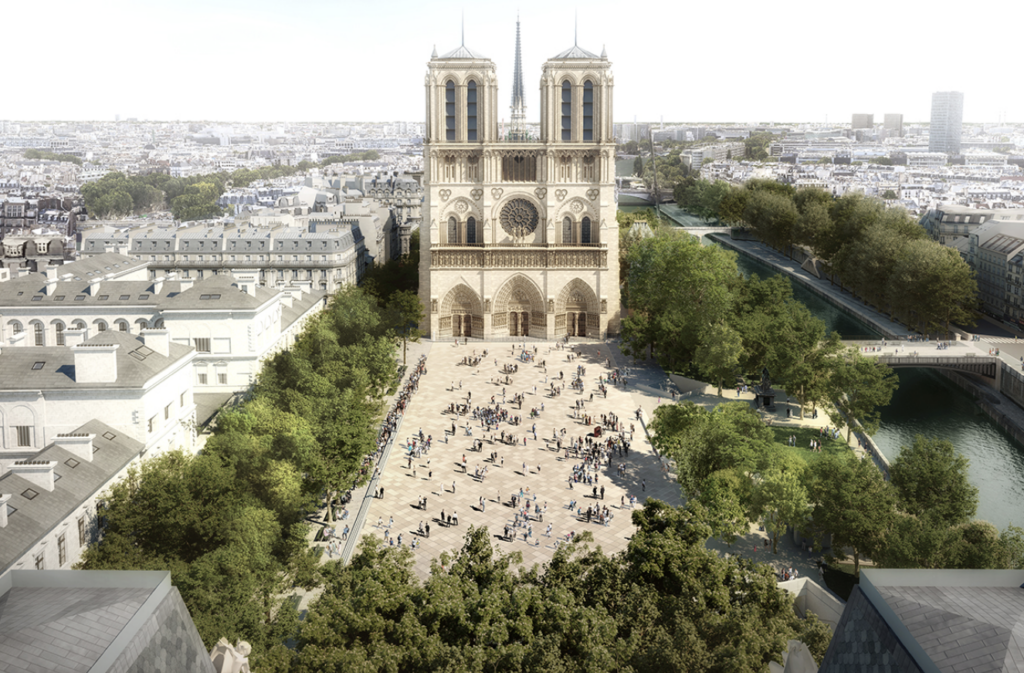A Belgian landscape architect who integrates green spaces into urban developments is becoming increasingly popular as a result of global warming, which he is actively working to combat through his work.
Bas Smets seeks to "refresh cities" by planting trees and creating water reservoirs. The Belgian architect created his firm in 2007 in Brussels – which is making concerted efforts to put nature at the heart of urban development – and has since worked on projects from Hong Kong to Bahrain. He was most recently chosen to redevelop the area around Cathédrale Notre-Dame de Paris.
The 47-year-old landscape architect's work focuses on inventing "a kind of urban ecology", and making radical changes to bring organic elements to public spaces. "Our ambition is to transform the city to make it resilient, habitable and pleasant," Smets told AFP.
"If we can do it on the Ile de la Cité, around Cathédrale Notre-Dame de Paris, we can do it everywhere."
Creating ecological reservoirs
As global warming increasingly changes human behaviour and the world around us, many countries are looking to redevelop urban spaces, often by introducing vegetation that is adapted to the nature of the soil and climate as a means of making cities more resilient to long episodes of drought.
The Notre-Dame project is one of the most popular tourist sites in Europe and will be redeveloped to integrate lawns with trees on either side of the cathedral. In the centre of the square will be a rainwater collection tank that will channel water into the ground thanks to a gentle incline.
The work is due to start in 2024 after the Olympic Games with renovations to the building itself completed by 2027. The cathedral was severely damaged by a spectacular fire in 2019.
Related News
- Female-friendly city: Six projects to 'emasculate' public spaces in Brussels
- Brussels in world top ten for cities going green the fastest
- Notre Dame fire is “wake-up call” for Belgian churches
For his projects around the world, Smets' office relies on local collaborations and the advice of specialists in various fields of expertise.
In the coming years, Smets will also transform and "greenify" the Central Station area in Brussels, an area notable for its lack of tree-lined avenues.
"It is very difficult to think of a response to climate change because it seems so inevitable. My hope is that cities will all act at the same time to create ecological reservoirs. But we need to do it now, not in ten years' time," he concluded.

